Implementing Project 06: Nghe An moves towards cashless schools
(Baonghean.vn) - Instead of depositing money directly at schools, payment via account is being applied by many schools in Nghe An and brings convenience to many parents, students and schools.
This is also one of the contents to implement Project 06 of the Government on approving the Project "Developing applications of population data, identification and electronic authentication to serve national digital transformation in the period 2022 - 2025".
Double benefits
Since the beginning of the school year, Ms. Tran Hue Bich (Le Mao Ward, Vinh City) no longer has to jostle and wait every time she has to go to Le Mao Primary School to pay for her child's meals and tuition. Instead, with just a few simple steps on her phone, she can complete all the school's payments, easily, quickly and conveniently.
Speaking more about this, she said: In my child's class, each child has an account with a separate code and I just need to enter the code of the child to be able to transfer money to any bank account. I think the mistake is very rare because when entering the code, the child's name will appear and I can use that to transfer money accurately.
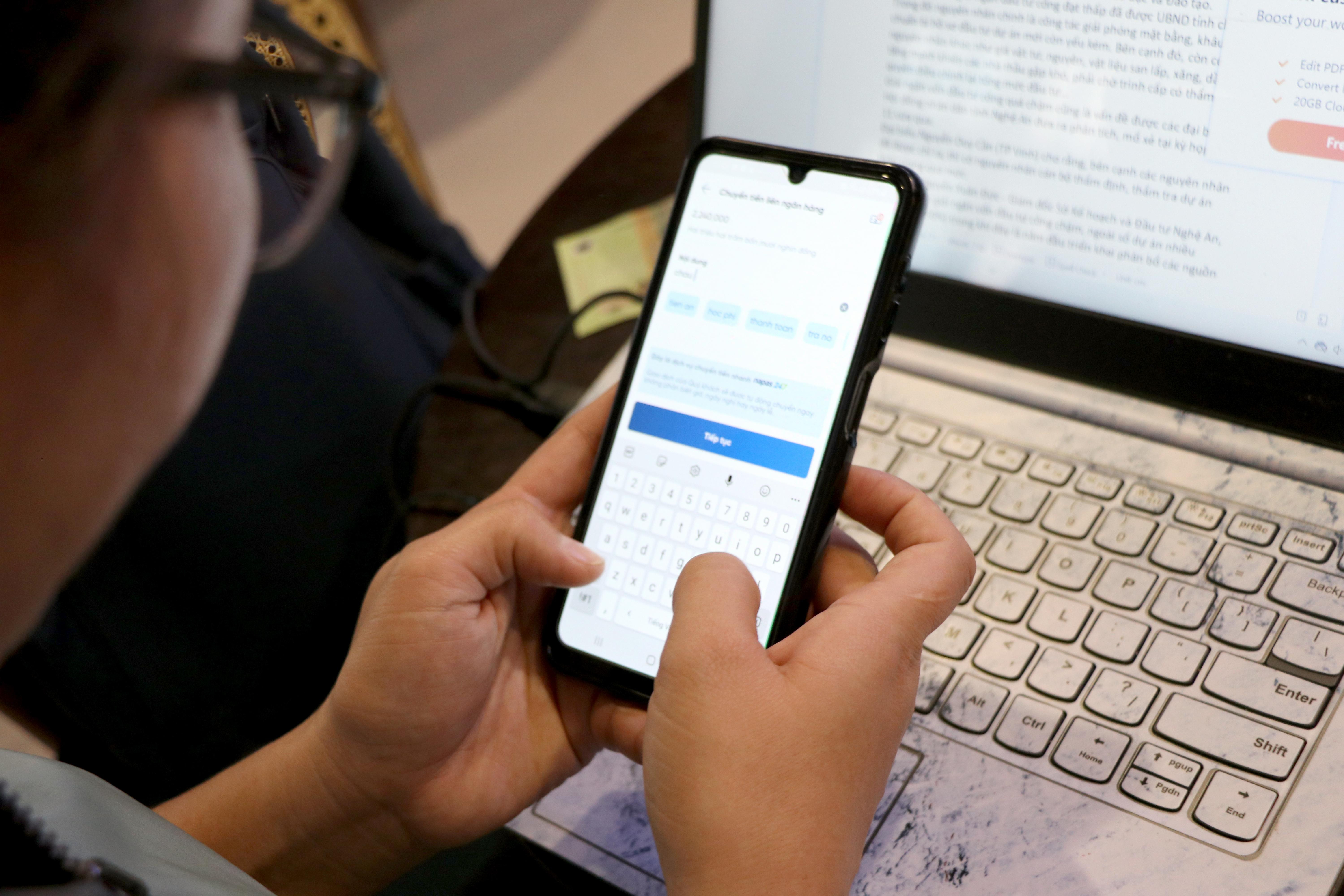 |
With just a few simple steps, parents can easily pay tuition fees for their children. Photo: My Ha |
Most parents in Vinh city have bank accounts. It seems easy to deposit money for their children at school, however, for a school with over 1,600 students like Le Mao Primary School, transferring money in the usual way will be very difficult to manage. To help parents conveniently deposit fees, from the 2021-2022 school year up to now, the school has tried some application software for depositing money at school.
In the first software, parents had difficulties if they did not have the same bank card system. Therefore, although it was deployed, the number of parents using it was not much and it was not really effective. In the 2022 - 2023 school year, the school used the software called "tuition collection solution via identified account". The advantage of this software is that it can be used inter-bank, each student has a separate identified account. Therefore, every month, the accounting department only needs to make a list of each student's receipts to the homeroom teacher and send it to the class's common group via zalo, facebook so that parents can easily grasp the information and transfer money easily.
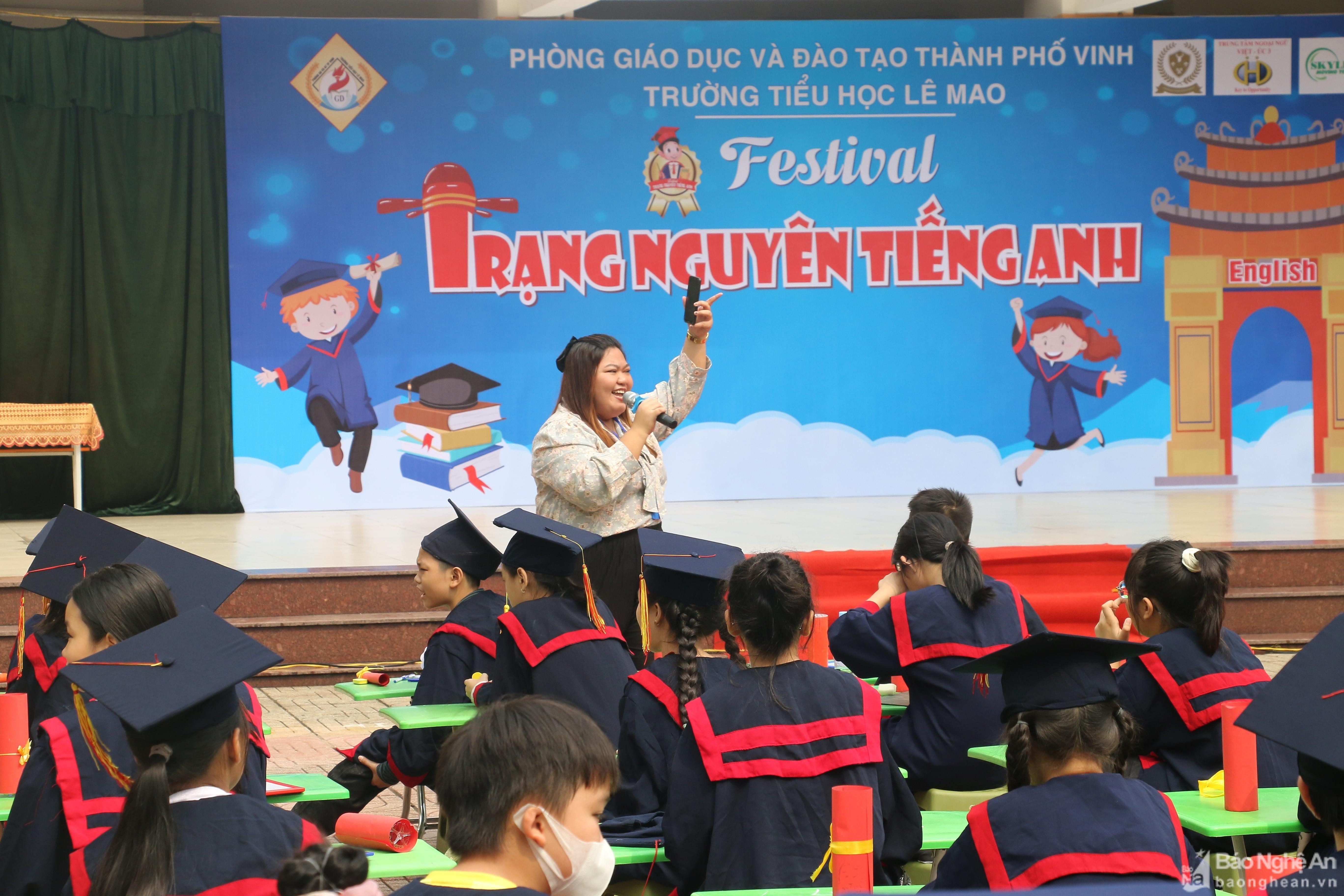 |
An extracurricular class of students at Le Mao Primary School, Vinh City. Photo: My Ha |
Before, usually on the 10th of the month, we would collect food and boarding fees from the students.
However, because it has to be collected directly, it sometimes takes almost the entire month and the accounting department, cashiers as well as parents have to come very early to deposit money, sometimes even having to queue. With the current form, depositing money is simple, easy to manage and saves working days for teachers and parents, so the rate of depositing money through accounts reaches over 90%.
For the school, account management is also easier than cash management.
Not only central schools, the use of cashless payment methods is being used by many schools in Nghe An. After many years working at Nam Cat Primary School (Nam Dan), Ms. Bach Thi Hoa - the school's accountant, saw the clear benefits of this payment method in the school. Therefore, although the number of parents currently using this method has only reached more than 50%, she still wants this method to be "covered" throughout the school in the near future.
Talking about this, Ms. Bach Thi Hoa said: The effectiveness of the cashless payment method is quite clear. That is, it limits the travel of parents, has supervision from the bank, has documents, keeps track; when there are errors, they can be easily checked and adjusted. From there, ensuring transparency in financial work, limiting negativity, minimizing occurrences and financial risks... In our area, many parents are currently working in industrial parks or working away from home, most of them are paid through their accounts. Therefore, when we apply this form, parents are very sympathetic and supportive.
Towards cashless schools
Collecting and paying tuition fees without cash and making school payments through accounts is one of the tasks of the school.Department of Education and Trainingassigned by the Provincial People's Committee according to Plan No. 771/KH - UBND dated November 7, 2022 on implementing a number of key tasks of Project 06 of the Government in Nghe An province.
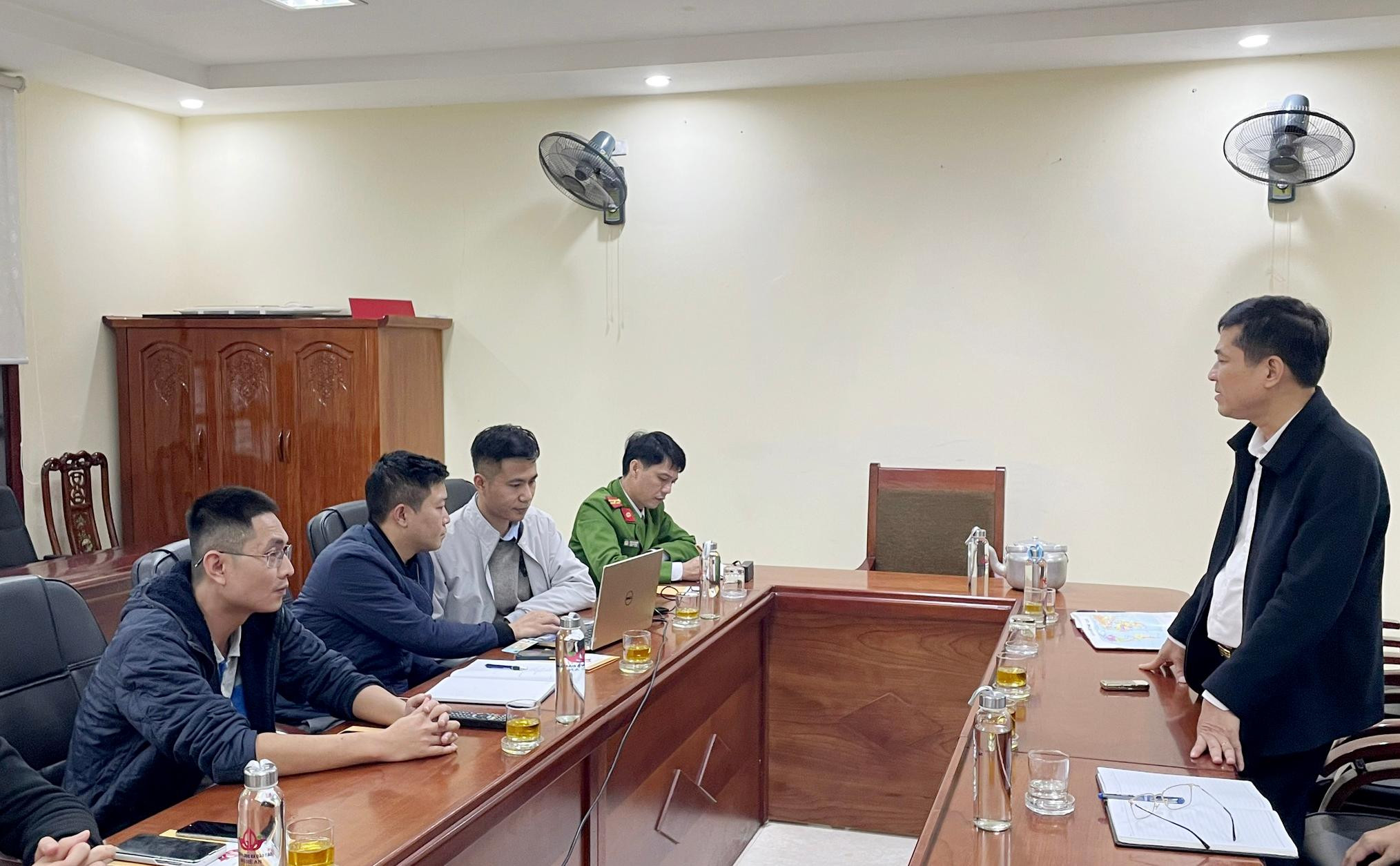 |
The Department of Education and Training works with relevant agencies on the implementation of Project 06 in the education sector. Photo: My Ha |
Accordingly, implementing the Government's Project on "Developing applications, population data, electronic identification and authentication to servedigital transformationIn the national period 2022 - 2025, vision to 2030" (Project 06), the Department of Education and Training has developed a specific plan with 3 contents, including: Statistics on the number of teachers, tuition collection solutions that educational institutions are using in the area; Coordinate with the Department of Administrative Police for Social Order of the Ministry of Public Security and the Provincial Police to research and guide the use of a unified non-cash collection method in the whole province; Pilot implementation of anti-exam cheating solutions in Vinh city for expansion assessment; Use mobile verification devices to authenticate exam participants to ensure the right person, avoid cases of proxy exams and exam room cheating.
Regarding this content, during the implementation period as requested, the Department of Education and Training has compiled data on schools that have used payment methods via accounts and data on the use of bank accounts to pay for educational services of students (or parents) in the whole province.
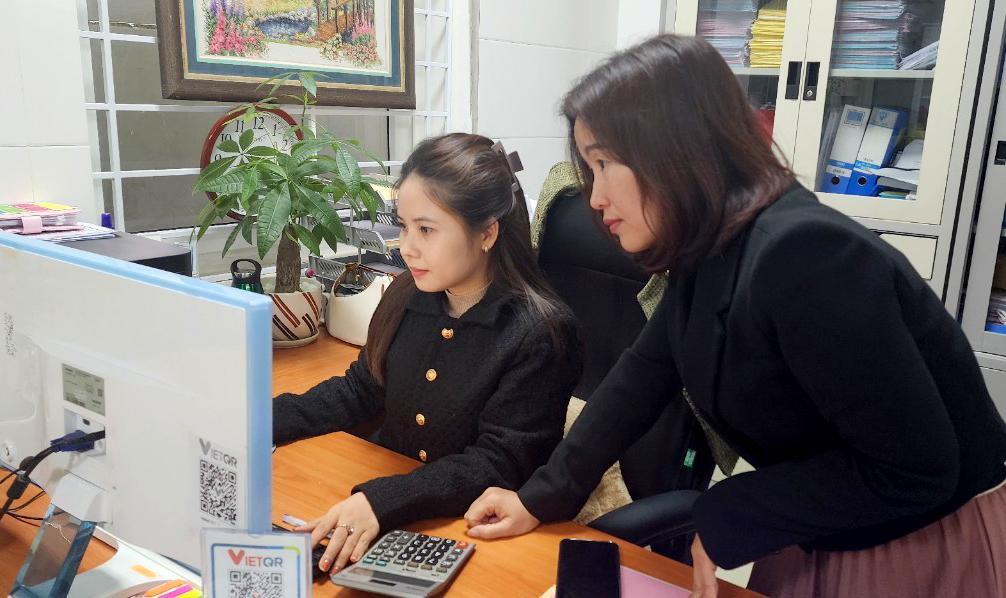 |
Phuong Hoang High Quality School uses many methods to facilitate parents to pay non-cash fees. Photo: My Ha |
According to statistics, the number of schools implementing non-cash collection is quite high, especially at central schools.
For example, in Vinh city, the whole city has 81 schools, 60 schools collect fees through banking software and Misa software, the remaining schools collect fees through ATM cards. In Cua Lo town, all schools collect fees through bank cards. Nghi Loc district has 29 kindergartens collecting fees through SISAP fee management software; 100/110 kindergartens, primary schools, and secondary schools in Dien Chau district also collect fees through SISAP software.
At high school level, about 50% of schools have implemented collections through bank software, VNEDU software or e-wallets.
Evaluating the implementation, many principals said that cashless payment brings convenience, ease, transparency and helps homeroom teachers reduce pressure in collecting school fees.
However, with the characteristics of Nghe An, implementing non-cash payments on a large scale still faces difficulties, especially in remote districts, rural areas where parents are still used to using cash, do not have bank accounts or are not proficient in using information technology.
To overcome this limitation, many factors are needed, such as strengthening propaganda to help parents see the benefits of not using cash, and early disclosure of revenues to help parents proactively prepare funds in their accounts. In addition, other objective factors are also needed, such as parents knowing how to use electronic transactions, regularly using bank accounts and having supporting software to help make depositing money convenient and easy to manage. Implementation also needs to be flexible in the spirit of voluntariness, suitable for each specific context.
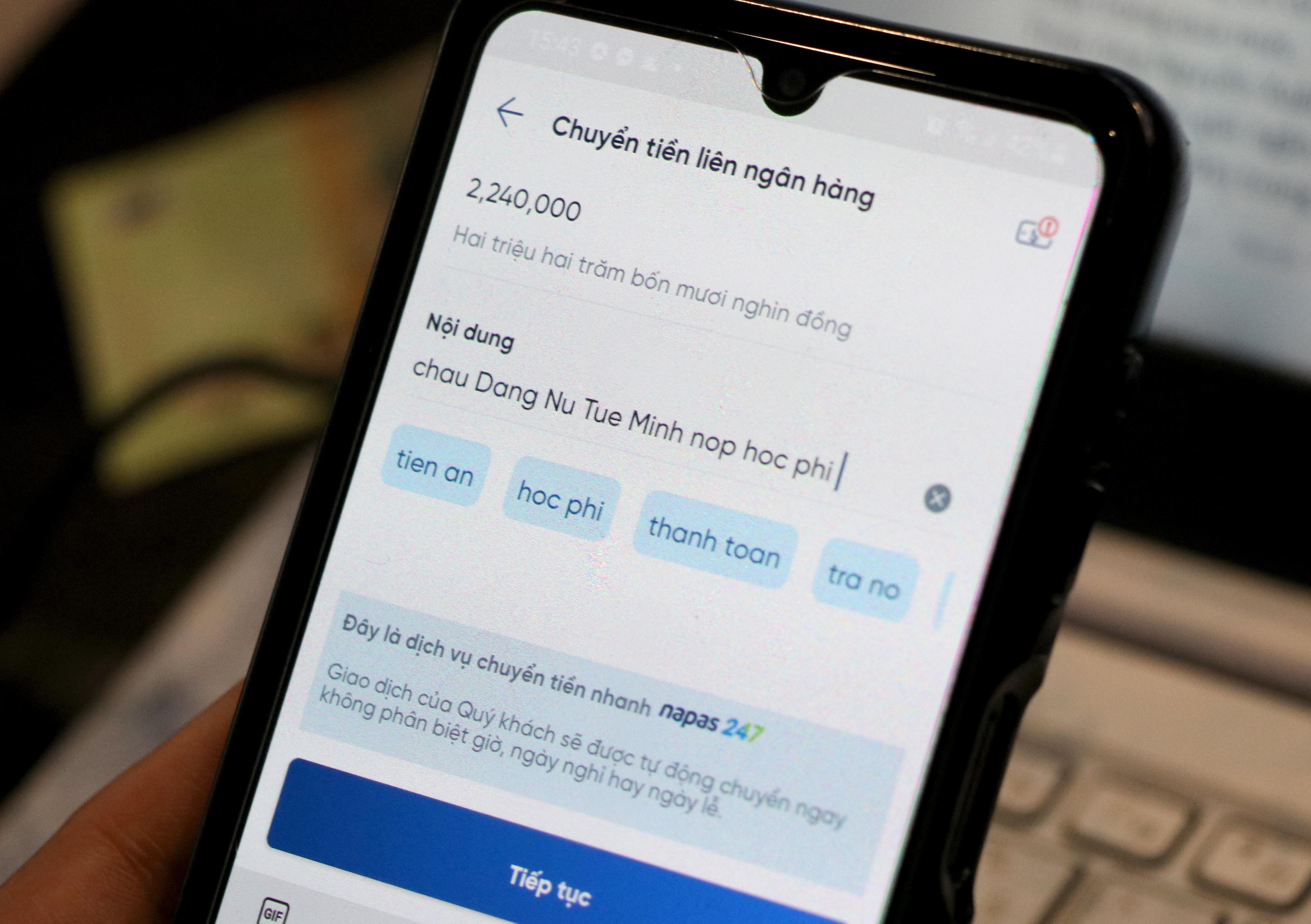 |
Nghe An is aiming for cashless schools. Photo: My Ha |
Regarding this content, Director of the Department of Education and Training Thai Van Thanh said: Project 06 has practical significance in the current period and implementing this well will bring great benefits to the country, contributing to saving, fighting waste, creating the most favorable conditions for the people. On the part of the Education sector, to effectively implement Project 06, it is necessary to enhance the role and responsibility of the leaders, staff, civil servants and public employees of the Education and Training sector in performing the tasks. The sector also sets out requirements during the implementation process, using the available infrastructure conditions of the sector to effectively implement, ensuring security, safety and confidentiality of citizens' information. At the same time, strictly comply with professional procedures to ensure implementation in accordance with the provisions of law, but ensure that people enjoy the maximum benefits from Project 06.
Currently, in the process of implementing the Project, the Department of Education and Training has also coordinated with PC 06 Department - Nghe An Provincial Police, the Department of Administrative Management of Social Order of the Ministry of Public Security to carry out tasks to ensure quality and efficiency according to the set roadmap.


